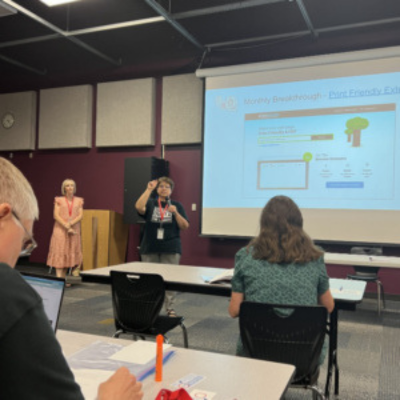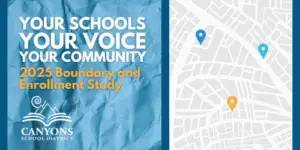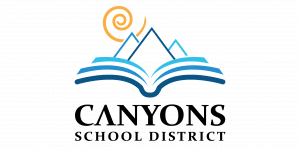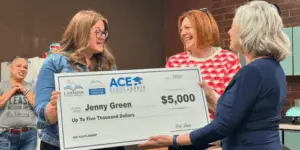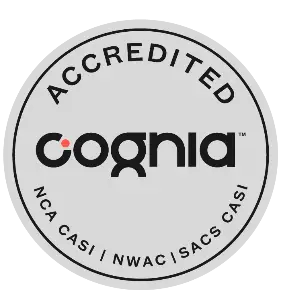Being a good citizen means being an informed citizen. Nothing short of a healthy democracy depends on it, says Canyons District’s Library and Media Specialist Gretchen Zaitzeff, who in 2022 helped bring into being an “information investigators” program that is empowering students to become just that.
The program, launched with a state grant and additional support from the News Literacy Project (NLP), is the first of its kind in Utah and has become a model for school districts across the country to follow. It came about through some “serendipity,” the NLP notes, as educational and policy interests aligned to address a contemporary crisis.
With the rise of “big tech” and social media, Americans have greater access to information than ever before. But numerous studies have found most adults and teens have trouble making sense of all that information. They can’t reliably spot so-called “fake news” — misinformation or disinformation — or discern fact from opinion.
As a result of this, and other forces, we have become more polarized. Trust in governmental institutions, from the media and U.S. Congress to banks, small businesses and schools, is eroding and, according to a 2022 Gallup study, has hit all-time lows.
It seems the only thing we can agree on anymore, is that we can’t agree on anything.
Enter Rep. Dan Johnson, R-Logan, a retired teacher and school principal, who sponsored legislation linking civics education to information literacy. The directive came with grant funding for which CSD’s social studies specialist Jodie Ide applied. Meawhile, CSD English language arts specialist Lesli Morris was named a News Literacy Project Ambassador for the Intermountain West.
The stage was set, Zaitzeff says. “With these two funding sources, CSD’s information literacy team developed a six-month training program to teach educators to build information literacy into their daily classroom instruction.”
The first year, 110 middle and high school educators in social studies and English were trained alongside librarians and instructional coaches. This year, all secondary teachers in all disciplines will have the option of participating in the professional development course with the goal of bringing the course to elementary teachers next fall.
Like reading, information literacy is fundamental to all learning, which is probably why librarians tend to be so invested in building these skills, says Zaitzeff. “But it’s a cross-disciplinary imperative. Everyone can and should be an information investigator, whether you’re interested in science or the arts, or you’re an aspiring business or political leader.”
So, what does it take to be an information investigator? It’s about more than discerning facts from falsehoods, though that’s certainly part of it. The goal of Canyons District’s program is to give students basic tools for critically analyzing and interpreting the information they encounter on TV or find in print buried in scientific studies or scattered across the digital realm.
Students are encouraged to approach information with a forensics mindset and ask: “What’s the original source? Who is sharing the information and what are their motives? What types of languages, visuals, or emotional triggers are used to get a point across?”
“Lateral reading,” is also a skill taught, which entails searching for multiple sources of information about a given topic to identify discrepancies or knowledge gaps. As Zaitzeff puts it: “We want to teach students how to think, not what to think.”

